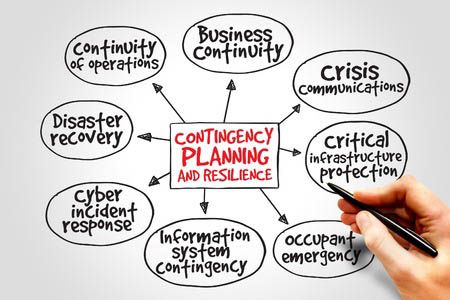
Running a small business is no easy task. As an owner, you have to handle various challenges and uncertainties daily. One such challenge includes handling unexpected crises that may jeopardize your business’s reputation, financial stability, and even its survival.
The Need for a Crisis Management Plan
In today’s highly connected and fast-paced world, a crisis can erupt within minutes and spread like wildfire through social media and news platforms. Every small business, irrespective of its industry, should have a well-thought-out crisis management plan in place to effectively handle any potential crisis that may arise.
1. Protecting Your Reputation
One of the most valuable assets a business possesses is its reputation. In times of crisis, the reputation of your small business can be at stake. A crisis management plan allows you to proactively monitor your brand’s online presence, efficiently respond to negative feedback, and protect your reputation from further damage.
2. Minimizing Financial Losses
Crisis situations, whether they arise from a product recall, a data breach, or a sudden change in government regulations, can lead to significant financial losses for small businesses. A well-prepared crisis management plan outlines strategies to mitigate financial risks, minimize operational disruptions, and ensure business continuity during difficult times.
3. Maintaining Customer Trust
During a crisis, customer loyalty and trust can be severely tested. A crisis management plan guides your business in maintaining open lines of communication with your customers, providing accurate and transparent information, and actively addressing their concerns. Trust is essential for retaining customers and securing your small business’s long-term success.
Key Components of a Crisis Management Plan
1. Risk Assessment and Preparedness
The first step towards effective crisis management is identifying potential risks and vulnerabilities specific to your small business. Conducting a thorough risk assessment allows you to anticipate crises, put preventive measures in place, and ensure that you are well-prepared to address them.
2. Crisis Communication Strategies
Clear and timely communication is crucial during a crisis. Your crisis management plan should outline communication protocols, including designated spokespersons, key messages, and channels for disseminating information to stakeholders, employees, customers, and the media.
3. Media Monitoring and Response
Monitoring media coverage and social media platforms enables you to stay informed and respond promptly to any negative publicity or misinformation. Your plan should include guidelines for monitoring online conversations, addressing public concerns, and preventing escalation through constructive dialogue.
4. Employee Training and Support
Your employees play a vital role in crisis management. Ensure they receive proper training to handle crisis situations, understand their responsibilities, and respond appropriately. Additionally, your plan should include provisions for employee support, both during and after a crisis, to help maintain morale and productivity.
5. Review and Improvement
Remember that a crisis management plan is not a one-time document, but an evolving framework to tackle different scenarios. Regularly revisiting and updating your plan based on lessons learned, industry trends, and feedback is essential to ensure its effectiveness and relevance.
Conclusion
Small businesses are vulnerable to a myriad of potential crises. Having a well-developed crisis management plan is paramount to protect your reputation, minimize financial losses, and maintain customer trust. By proactively preparing for crises, your small business can weather the storm and emerge stronger, bolstering its resilience and ensuring long-term success.

